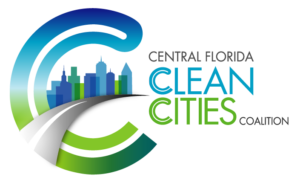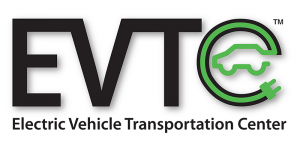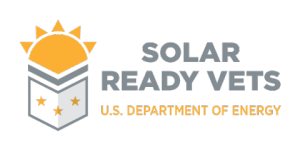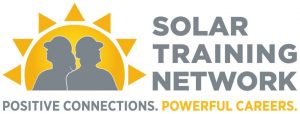FSEC® programs continually change depending upon funding. Following is a list of legacy programs that FSEC either led or was an active participant.
Central Florida Clean Cities Coalition
 The Central Florida Clean Cities Coalition is sponsored by the U.S. Department of Energy and exists to promote the reduction of oil and gas wherever possible. The Coalition supports sustainable transportation practices, through efforts to advance deployment of alternative fuel technologies, mass transit projects, and fleet optimization measures.
The Central Florida Clean Cities Coalition is sponsored by the U.S. Department of Energy and exists to promote the reduction of oil and gas wherever possible. The Coalition supports sustainable transportation practices, through efforts to advance deployment of alternative fuel technologies, mass transit projects, and fleet optimization measures.
The Central Florida Clean Cities Coalition area encompasses 10-counties, consisting of Brevard, Flagler, Indian River, Lake, Okeechobee, Orange, Osceola, Seminole, St. Lucie and Volusia Counties.
Central Florida Clean Cities strives to improve air quality, increase U.S. national energy security, and promote economic opportunities in Florida. The Coalition provides a forum for members to leverage resources, develop joint projects, work together on public policy issues, promote clean air technologies, and the reduction of oil and gas in Florida. Central Florida Clean Cities has experience in building and paving the way for public and private stakeholder groups, conducting technical education and outreach programs, and managing alternative fuel programs.
Electric Vehicle Transportation Center (EVTC)
 The Electric Vehicle Transportation Center (EVTC) is a U.S. Department of Transportation-funded University Transportation Center. It is a research and education effort to help create the nation’s electric vehicle transportation network. The EVTC is bridging the gap between electric vehicles and the traditional transportation system.
The Electric Vehicle Transportation Center (EVTC) is a U.S. Department of Transportation-funded University Transportation Center. It is a research and education effort to help create the nation’s electric vehicle transportation network. The EVTC is bridging the gap between electric vehicles and the traditional transportation system.
The EVTC’s research, education and its related projects help prepare the U.S. transportation system for the arrival of electric vehicles into a sustainable transportation network. At the same time, however, EVTC seizes the opportunity these vehicles present to help update the electric grid. Electric Vehicles (EVs) provide the unique capability of being able to store energy. As a result, an EV can both use and supply energy to the nation’s electric grid. The future use of “smart-grid enabled” equipment will feature real-time, two-way communication. It will be capable of providing live network access and the ability to remotely control both the transportation network and the electric power grid.
The Electric Vehicle Transportation Center is a comprised of transportation and energy experts from the University of Central Florida (UCF), the University of Hawaii, and Tuskegee University. Led by UCF, the EVTC program conducts research, educates students, transfers technologies, and forms partnerships with manufacturers, suppliers, utilities and governmental agencies. The EVTC’s primary goal is to accelerate EV acceptance and adoption.
Go SOLAR Florida
 Go SOLAR Florida is a U.S. Department of Energy (DOE)-funded program, and is part of the SunShot Initiative Rooftop Solar Challenge II competitive award. Its goal is to increase the use of and access to grid-tied solar energy installations, both residential and commercial. The program is reducing market barriers, lowering non-hardware related installation costs and providing access to financing options.
Go SOLAR Florida is a U.S. Department of Energy (DOE)-funded program, and is part of the SunShot Initiative Rooftop Solar Challenge II competitive award. Its goal is to increase the use of and access to grid-tied solar energy installations, both residential and commercial. The program is reducing market barriers, lowering non-hardware related installation costs and providing access to financing options.
Go SOLAR Florida partners have been working to reduce soft costs associated with rooftop photovoltaic (PV) solar system installation. As a result of this program, the Solar Plans Design System (SPDS) is now in use throughout Florida. This web-based, design plans system provides a uniform source of structural and electrical plans. It helps lower engineering design costs and the time required for design review. As a result, it speeds up the permitting process.
Foundations for Engineering Education for Distributed Energy
 The Foundations for Engineering Education for Distributed Energy Resources (FEEDER) center is a consortium of members. Led by the University of Central Florida, it includes universities, two national laboratories, eight utilities and 11 industrial companies. FEEDER will significantly advance power systems engineering capability in the United States.
The Foundations for Engineering Education for Distributed Energy Resources (FEEDER) center is a consortium of members. Led by the University of Central Florida, it includes universities, two national laboratories, eight utilities and 11 industrial companies. FEEDER will significantly advance power systems engineering capability in the United States.
As one of four centers in the national network, FEEDER performs research, curriculum development, education and training activities. It aims at widespread adoption of distributed renewable energy resources and smart grid technologies.
The FEEDER Consortium is funded by the Office of Energy Efficiency and Renewable Energy (EERE), and the U.S. Department of Energy, which is under the GEARED (Grid Engineering for Accelerated Renewable Energy Deployment) program. This national network of centers supports power systems training and curriculum development. It supports growth and expertise in power systems through research and development, data generation, collection, analysis, and/or simulation.
Solar Ready Vets®
 The SunShot Initiative’s Solar Ready Vets® program connects our nation’s skilled veterans to the solar energy industry. This program prepares them for careers as solar photovoltaic (PV) system installers, sales representatives, system inspectors, and other solar-related occupations. Solar Ready Vets is enabled by the U.S. Department of Defense’s SkillBridge initiative. It allows exiting military personnel to pursue civilian job training, employment skills training, apprenticeships, and internships up to six months prior to their separation.
The SunShot Initiative’s Solar Ready Vets® program connects our nation’s skilled veterans to the solar energy industry. This program prepares them for careers as solar photovoltaic (PV) system installers, sales representatives, system inspectors, and other solar-related occupations. Solar Ready Vets is enabled by the U.S. Department of Defense’s SkillBridge initiative. It allows exiting military personnel to pursue civilian job training, employment skills training, apprenticeships, and internships up to six months prior to their separation.
Solar Training Network
 The Solar Training Network is a program of The Solar Foundation. It is funded by the U.S. Department of Energy’s SunShot Initiative. This program is designed to help meet the workforce needs of the solar industry through solar training and strategic employment partnerships.
The Solar Training Network is a program of The Solar Foundation. It is funded by the U.S. Department of Energy’s SunShot Initiative. This program is designed to help meet the workforce needs of the solar industry through solar training and strategic employment partnerships.
The Solar Foundation leads the Solar Training Network. Its experience includes years of thought leadership in solar labor market intelligence, education, technical assistance, and workforce development. The annual Solar Jobs Census is the Solar Foundation’s trusted, go-to resource for solar jobs information. Therefore, the Solar Training Network will tackle one of the key challenges identified in the Jobs Census series—the ever-increasing need for skilled solar workers.
